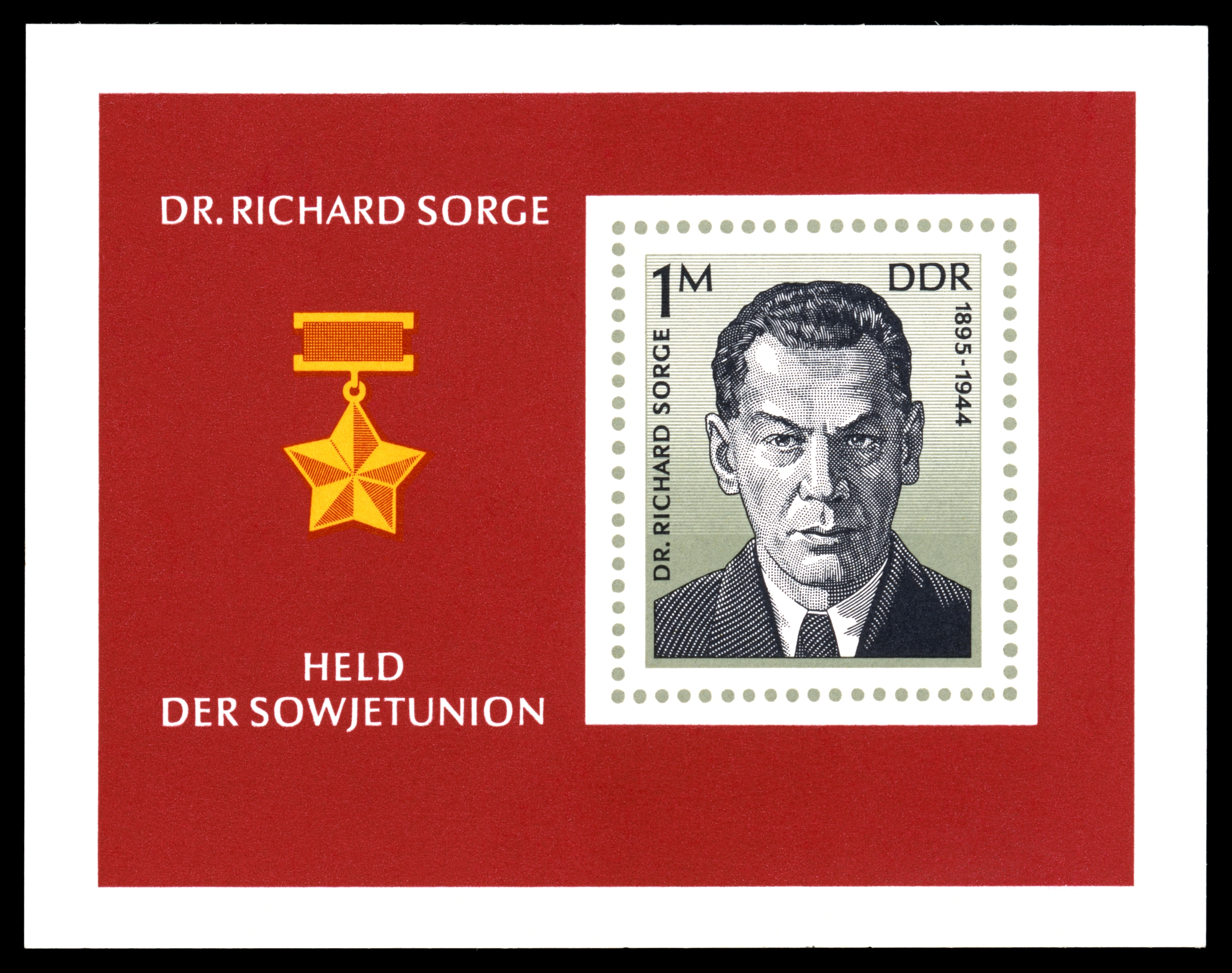NOVEMBER 12, 2021 – Star Media, the Russian TV/film production company, delivers again. Yesterday, I finished watching its 12-episode-series, Sorge: Master Spy—a superb work, even if you’re not interested in WW II. That conflagration unfolds only as backdrop; the entire setting is Tokyo (before being fire-bombed by American aircraft) with intermittent trips to Stalin’s Kremlin office.
The series is inspired by an actual spy—Dr. Richard Sorge—who was a genius actor, as old-time spies needed to be. The guy who plays Sorge is also a genius actor.
When I researched Sorge, I discovered a fascinating historical figure. Born of German parents in Baku (his father was a mining engineer) in 1895, the future spy was educated in Germany and fought in “The Great War” until he was seriously wounded. While convalescing in Berlin, he fell in love with his nurse, Helma, and pondered the cause of war. He became a socialist, then a communist—evidence that as Republicans fear, “socialism” is a gateway ideology to the “really bad stuff.”
Sorge became a prominent German journalist, which provided cover for work as a Soviet agent. In this dual capacity he was stationed in Japan as war clouds gathered. With a brilliant intellect, irresistible charm, and convincing acting ability, Sorge grew so tight with Nazi diplomats in Tokyo, they relied on him to draft reports to Berlin. He even became the Ambassador’s chief assistant. With access to classified information, the “Master Spy” was in position to provide the Kremlin with critical intelligence regarding Germany’s invasion of the Soviet Union (“Operation Barbarossa”) and later, Japan’s decision not to attack the Soviet Union.
Stalin didn’t believe the intel about Barbarossa but fortunately, trusted Sorge’s word that the Japanese wouldn’t attack in the East. The latter intelligence allowed for movement of reinforcements from Eastern Siberia to the successful defense of Moscow. Though Sorge played a pivotal role in world history, his reward was the gallows—at the hand of the Japanese, who’d arrested him for espionage.
The execution underscored humanity’s proclivity for injustice. Japanese authorities realized Sorge’s spying activity never harmed their interests but left clemency up to Stalin. When Sorge’s champion inside the Kremlin made the case to Stalin, Stalin’s response was, “I’ve never heard of him.” Purportedly, Stalin was concerned about British and American perceptions if he were to deal independently with their common enemy, the Japanese.
The series is further emotionally wrenching thanks to a love-triangle—1. Sorge; 2. the German Ambassador’s wife (the same Helma who’d been Sorge’s nurse); and 3. a Japanese woman, Hanako, singing waitress at the Bavarian-style, Tokyo restaurant frequented by German embassy staff. Inadvertent betrayals by Helma and Hanako led to Sorge’s demise. In the series, these characters and relationships are developed exquisitely with barely a make-out scene.
As with every Star Media production I’ve watched, casting, directing, acting, cinematography, and attention to set detail are of the highest order. Character development approaches what’s expected in great literature. And there’s never a dull moment.
(Remember to subscribe to this blog and receive notifications of new posts by email.)
© 2021 by Eric Nilsson
